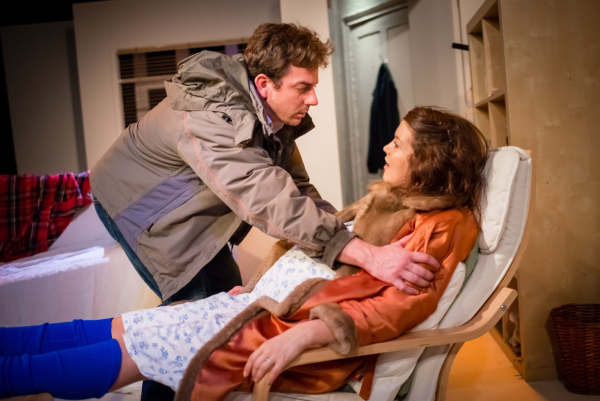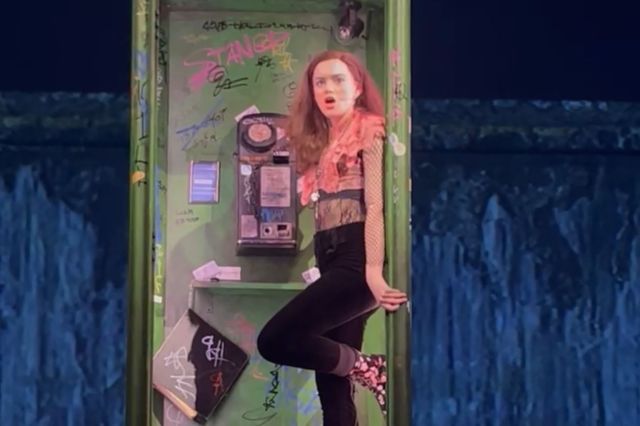My Girl 2 (Old Red Lion)
Alexander Neal and Emily Plumtree impress in Keeffe’s spikey update of his 1989 play ”My Girl”

© Adam Trigg
Is pregnancy a problem in a marriage? It can be, suggests playwright Barrie Keeffe, if you can’t pay the bills and live in a cramped inner city flat and one of you tries to help others in a profession, social worker, sneered at by others and undervalued by politicians.
My Girl 2 is a fiery two-hander for the new recession, a marriage in meltdown, and a third version of a play that started out at the old Soho Poly in 1975, bounced back with Karl Howman and Meera Syal at Stratford East in 1989 and now surfaces, still angry, tweaked with spiky updates: a boring policy report makes Fifty Shades of Grey look like a Barbara Cartland novel; and Ian Duncan Smith has stoutly declared that if he can live on £53 dole money a week, so can, etc…
Just as the Arcola has recently reminded us what a fine theatre writer Sarah Daniels was in the 1980s, so Keeffe – a star playwright in the same decade, his film script of The Long Good Friday (with Helen Mirren and Bob Hoskins) still resonating – more than merits re-visiting.
This play, with Sam (Alexander Neal) and Anita (Emily Plumtree) locked in opposition over mounting debts, the screaming first child, the bulging second, a rare night on the tiles and the suspicion of a work-related dalliance, is a modern dance of defeat and resilience, with a soundtrack of Otis Redding (hence the title) and the Four Tops.
Keeffe, a former local newspaper hack, has Sam describe the Daily Mail as the paper for people who say, "My son can paint better than Picasso" and the Guardian unsuitable for stuffing the draughty windows, "too many leaks." But Sam is tortured, too, by having to deal with cases he wasn’t trained for, which complicates his attraction to the 18 year-old whose child has been taken into care.
Anita, meanwhile, craves the man she thinks she married, as well as her own flat stomach. The writing, and Paul Tomlinson‘s production, moves easily between various crises, and takes you by surprise in sudden jolts of violence, Sam’s trance-like confessions, and his resistance to saving money by moving out ("I wouldn’t be seen dead in Basildon").
Neal is excellent at conveying Sam’s confusion, which comes from a conflict in his own instinct for honesty and tendency to slyness, while Plumtree, a lovely actress, never falters in mixing open-faced yearning with the grittiness of her affection and determination to see things through.












